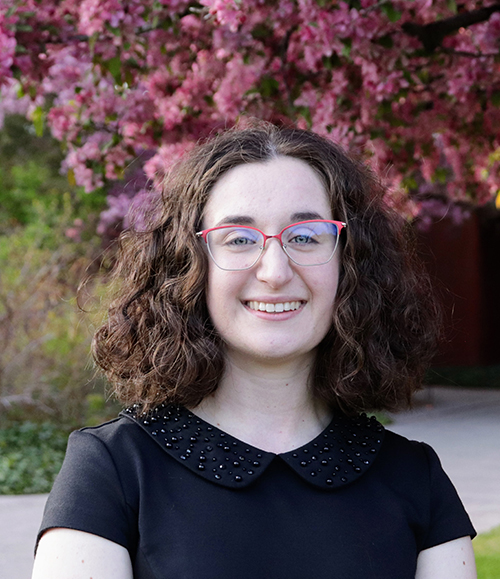MSU Sociology welcomes Dr. Sam Castonguay
October 15, 2025 - Karessa Weir
 As a meteorology undergraduate at Ithaca College, Sam Castonguay loved studying the weather but found the field of sociology to be a way to answer bigger questions than her current courses were offering.
As a meteorology undergraduate at Ithaca College, Sam Castonguay loved studying the weather but found the field of sociology to be a way to answer bigger questions than her current courses were offering.
“I wanted to look at the bigger picture – the why of when communities don’t evacuate before a storm or what leads organizations to fail to respond to an emergency,” she said. “In my first Environmental Sociology class, I was provided with the tools to find answers. Sociology provides me with a perspective not just trivia knowledge.”
Even as an undergraduate, she knew she wanted to be involved in research. She worked with two professors and conducted interviews on “the most bizarre subjects.”
“I really enjoyed the process. It filled a hole to be doing research. I knew if I wanted to keep researching, I would need to go to graduate school,” she said.
Castonguay moved across the country to Washington State University where she discovered so many overlapping research topics in environment and gender and sexuality, as well as organizational sociology. Organizational sociology examines individual and group behavior within organizational settings, as well as the structure and behavior of organizations themselves. It is an interdisciplinary field that integrates insights from psychology, sociology, political science, and economics to study various aspects of organizations.
“My PhD was a way to connect all of them together with organizational sociology,” she said. “It’s in the middle level of sociology where all the currents get solidified.”
Her dissertation combined her interest in higher education, nonprofits, and environmental non-governmental agencies. It is titled “Fighting at the Meso-Level? An Organizational Approach to Environmental Inequality and Justice.”
In sociology, the meso level of analysis examines intermediate-sized social groups, organizations, and communities, such as workplaces, schools, or cities, that fall between the macro (large-scale society) and micro (small-scale individual interactions) levels. It focuses on the interactions and relationships between these groups and how they function, providing a mid-range perspective to understand social phenomena.
After completing her PhD, Castonguay joined her partner at MSU where she now teaches Sociology 101 and 316(Youth and Society).
Her research and teaching areas are social and environmental inequality, organizational sociology, sociology of work, and sociology of gender.
Castonguay’s work examines how organizations create, maintain, and disrupt gender and racial inequalities, focusing on actors such as environmental movement organizations, colleges and universities, and nonprofits. Her work has been published in venues such as Environmental Sociology, Nonprofit and Voluntary Sector Quarterly, and the ADVANCE Journal.
She also serves as the Network Coordinator for the Work and Family Researchers Network, a professional organization that brings together researchers, practitioners, and policy experts from around the world to answer pressing questions on work and family issues.

